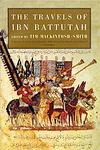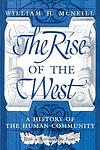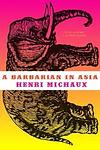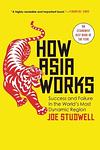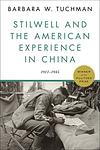The Greatest "Asian History, Asia" Books of All Time
Click to learn how this list is calculated.
This list represents a comprehensive and trusted collection of the greatest books. Developed through a specialized algorithm, it brings together 300 'best of' book lists to form a definitive guide to the world's most acclaimed books. For those interested in how these books are chosen, additional details can be found on the rankings page.
Genres
Asian History is a category of books that focuses on the historical events, cultures, and societies of Asia. This category includes books that cover a wide range of topics, including the ancient civilizations of China, Japan, and India, the rise and fall of empires, the impact of colonialism, and the modernization of Asian countries. It also includes books that explore the social, political, and economic changes that have shaped the region over time. Overall, Asian History provides readers with a comprehensive understanding of the rich and diverse history of Asia.
The "Asia" category for books encompasses a wide range of literature that explores the diverse cultures, histories, and societies of the continent. This category includes works of fiction, non-fiction, and poetry that delve into the complexities of Asian life, from the bustling cities of Japan and China to the remote villages of India and Nepal. Books in this category may explore themes such as religion, politics, family, and tradition, and offer readers a glimpse into the rich and varied tapestry of Asian culture.
Countries
Date Range
Reading Statistics
Click the button below to see how many of these books you've read!
Download
If you're interested in downloading this list as a CSV file for use in a spreadsheet application, you can easily do so by clicking the button below. Please note that to ensure a manageable file size and faster download, the CSV will include details for only the first 500 books.
Download-
1. Orientalism by Edward W. Said
This book is a critical examination of Western attitudes towards the East, particularly the Middle East, and how these attitudes have shaped and continue to shape Western policies and perceptions. The author argues that the West has a long history of viewing the East as the "other," exotic and inferior, and that this view has been institutionalized through academic disciplines, literature, and media. This "Orientalism," as the author calls it, has served to justify colonialism and imperialism, and continues to influence Western attitudes and policies towards the East today.
-
2. Travels by Marco Polo
This book is a detailed account of a Venetian merchant's extensive travels throughout Asia during the 13th century. The narrative provides a comprehensive exploration of the diverse cultures, customs, landscapes, wildlife, and wealth of the Eastern world, including the Mongol Empire and China, where the author spent time in the court of Kublai Khan. His descriptions of the grandeur and sophistication of these civilizations challenged European assumptions about the East, and his tales of exotic wonders and adventures continue to captivate readers today.
-
3. Travels (Ibn Battúta) by Ibn Battúta
The book is a comprehensive travelogue written by a 14th-century Moroccan scholar and explorer who traveled extensively across the known world, from Africa to the Middle East, India, China, and Europe. The author shares his observations and experiences in vivid detail, offering unique insights into the diverse cultures, religions, and societies he encountered during his journeys. His accounts serve as a significant historical record of the world during the Middle Ages, providing a firsthand perspective of life during that period.
-
4. The Rise And Fall Of The Great Powers by Paul Kennedy
The book in question offers a comprehensive analysis of the economic and military factors that have shaped the relative power of nations from the 16th century to the late 20th century. It argues that the rise and fall of great powers are closely linked to their ability to manage economic resources and maintain military strength. The author examines the patterns of history to show how the overextension of an empire's resources often leads to decline, and suggests that managing the balance between wealth and power is crucial for the longevity of a great power. The book also provides insights into the potential future of global power dynamics by considering the implications of these historical patterns for contemporary superpowers.
-
5. The Rise of the West by William H. McNeill
"The Rise of the West" is a comprehensive historical narrative that explores the development of Western civilization from the early stages of human history to the 20th century. The book provides a detailed analysis of various civilizations around the world, their interactions, and the resulting cultural exchanges that have shaped the modern world. It also discusses the significant factors, such as technological advancements, religious transformations, and political changes, that have contributed to the West's ascendancy.
-
6. Oriental Despotism by Karl August Wittfogel
"Oriental Despotism" presents a theory that ancient bureaucratic societies, particularly those in Asia, developed as a result of the need to manage large-scale irrigation systems. The author argues that the control of water resources in arid regions led to the creation of centralized, autocratic power structures, which he terms "hydraulic despotisms." These governments wielded significant control over their subjects, as the management and distribution of water was crucial for agriculture and survival. The book explores how this form of governance influenced the political and social structures of various Eastern civilizations, contrasting them with Western societies that developed under different ecological conditions.
-
7. A Barbarian In Asia by Henri Michaux
This travelogue presents a series of vivid, often surreal observations and reflections on Eastern cultures through the eyes of a Western traveler, who traverses the Asian continent with a perspective that oscillates between fascination and alienation. The narrative is characterized by its poetic style and ethnocentric critique, offering a candid, at times controversial, account of the customs, people, and spiritual practices encountered. The work captures the interplay of the barbarian's internal reflections and the external exoticism of a world vastly different from his own, creating a complex and introspective journey through 1930s Asia.
-
8. Empire Of Cotton: A Global History by Sven Beckert
"Empire of Cotton" by Sven Beckert is a comprehensive global history of cotton, exploring its impact on the world economy, politics, and society from the 18th century to the present day. Beckert argues that cotton played a crucial role in the development of capitalism, colonialism, and imperialism, and that its production and trade were intimately linked to the exploitation of labor, the growth of slavery, and the rise of industrialization. The book offers a fascinating and thought-provoking perspective on the complex and often violent history of cotton and its enduring legacy in the modern world.
-
9. How Asia Works by Joe Studwell
This book provides a comprehensive analysis of the economic development in nine Asian countries, focusing on the policies and strategies that have driven their growth. It contrasts successful economies like Japan, South Korea, and China with less successful ones in Southeast Asia, examining land reforms, manufacturing policies, and financial control. The author argues that the successful countries followed a similar developmental path by implementing land reform to support smallholder farming, focusing on manufacturing with strict productivity goals, and controlling the financial sector to support these policies. The book challenges conventional economic theories and offers insights into the mechanisms behind Asia's economic transformations.
-
10. Stilwell and the American Experience in China by Barbara Wertheim Tuchman
The book is a detailed historical account of the American military experience in China from 1911 to 1945, specifically focusing on the life and career of General Joseph Stilwell. The narrative provides an in-depth look at Stilwell's efforts to train Chinese troops during World War II, his clashes with Chiang Kai-shek, and his role in the complex political dynamics of the time. It also offers a broader exploration of American-Chinese relations during this period, highlighting the cultural misunderstandings and political tensions that marked this chapter in history.
Reading Statistics
Click the button below to see how many of these books you've read!
Download
If you're interested in downloading this list as a CSV file for use in a spreadsheet application, you can easily do so by clicking the button below. Please note that to ensure a manageable file size and faster download, the CSV will include details for only the first 500 books.
Download

